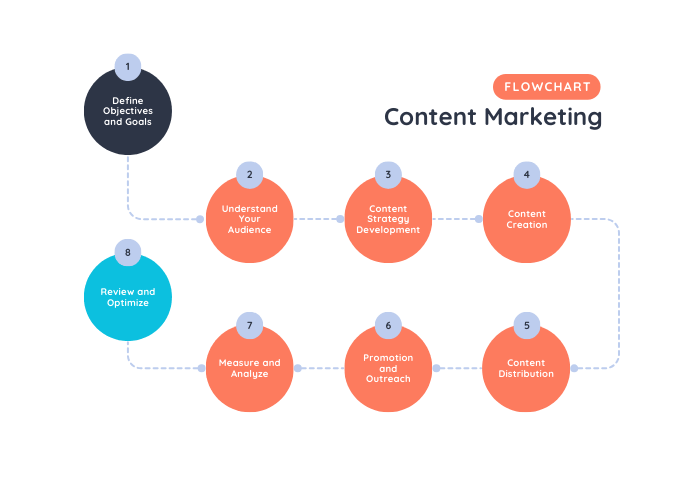The construction and contracting industry is no longer confined to word-of-mouth referrals and traditional advertising methods. The internet has transformed the way clients search for and hire contractors, making online visibility a crucial factor in the success of any contracting business. This shift has led to the rise of Contractor SEO (Search Engine Optimization), a specialized area of digital marketing that focuses on improving the online presence of contractors and construction companies.

If you’re a contractor looking to grow your business, understanding and implementing SEO strategies can significantly impact your ability to attract new clients and secure more projects. This comprehensive guide will delve into everything you need to know about Contractor SEO, including its importance, key strategies, and best practices to help you dominate search engine results and grow your business.
1. What is Contractor SEO?
Understanding SEO
Search Engine Optimization (SEO) is the process of optimizing your website to improve its visibility on search engine results pages (SERPs). When potential clients search for services that your contracting business offers, effective SEO ensures that your website ranks highly in those search results. The higher your website ranks, the more likely it is that potential clients will visit your site and engage your services.
Why SEO is Important for Contractors
For contractors, SEO is particularly vital because the competition is fierce, and the majority of clients now start their search for contractors online. Whether they are looking for a general contractor, a specialist in roofing, plumbing, electrical work, or any other contracting service, being visible in search results can make the difference between winning a contract and losing it to a competitor.
SEO not only increases your visibility but also builds credibility. A website that appears at the top of search results is often perceived as more trustworthy and professional, which is essential in an industry where reputation is everything.
2. The Benefits of SEO for Contractors
1. Increased Online Visibility
One of the most significant benefits of SEO for contractors is increased online visibility. With the right SEO strategies, your contracting business can rank higher in search engine results, making it easier for potential clients to find you. This visibility is crucial for attracting new business, especially when clients are searching for services in your area.
For example, if a homeowner searches for “roofing contractor near me,” effective SEO ensures that your business appears prominently in those search results, increasing the likelihood of getting that call.
2. Targeted Traffic
SEO not only drives more traffic to your website but also ensures that the traffic is highly targeted. By optimizing your website for specific keywords related to your services, you attract visitors who are actively searching for what you offer. This targeted traffic is more likely to convert into leads and, eventually, clients.
For instance, if your business specializes in eco-friendly construction, optimizing for keywords like “green building contractor” or “sustainable construction” will attract clients interested in those specific services.
3. Higher Conversion Rates
An optimized website doesn’t just attract more visitors; it attracts the right kind of visitors—those who are more likely to convert into paying clients. SEO helps improve your website’s user experience (UX), which includes fast loading times, mobile optimization, and intuitive navigation. A well-optimized site encourages visitors to stay longer, explore your services, and eventually reach out to you.
4. Cost-Effective Marketing
Compared to traditional forms of advertising, SEO is a cost-effective marketing strategy. While there is an initial investment in SEO, the long-term benefits far outweigh the costs. Once your website achieves good rankings, you can enjoy continuous traffic without the ongoing costs associated with pay-per-click (PPC) advertising or other paid marketing channels.
SEO also helps build your brand over time. As your website gains authority and trustworthiness, maintaining your rankings becomes easier and less costly, offering long-term value for your investment.
5. Building Credibility and Trust
Clients tend to trust construction SEO companies that appear on the first page of search results more than those buried on the second or third pages. By investing in SEO, you can position your contracting business as a leader in your field. This credibility is crucial in the contracting industry, where trust and reliability are key factors in client decisions.
6. Competitive Advantage
The contracting industry is highly competitive, with numerous businesses vying for the same clients. SEO gives you a significant competitive advantage by helping your website rank higher than your competitors. This is achieved by targeting relevant keywords, creating valuable content, and providing a superior user experience.
By analyzing your competitors’ SEO strategies, you can identify gaps in their approach and capitalize on opportunities they may have missed, giving you an edge in attracting clients.
7. Long-Term Results
Unlike PPC campaigns, where traffic stops as soon as you stop paying, the benefits of SEO continue over time. A well-optimized website can maintain high rankings and continue to attract traffic for months or even years after the initial investment. This long-term impact makes SEO an essential component of any successful contractor’s marketing strategy.
3. Key SEO Strategies for Contractors
1. Keyword Research

Keyword research is the foundation of any successful SEO strategy. It involves identifying the specific words and phrases that potential clients use when searching for the services you offer. For contractors, these keywords might include terms like “general contractor,” “plumbing services,” “home renovation,” or “commercial construction.”
To effectively conduct keyword research, you can use tools like Google Keyword Planner, SEMrush, or Ahrefs. These tools allow you to find high-volume keywords relevant to your business and identify less competitive, long-tail keywords that can help you rank more easily.
Once you’ve identified your target keywords, incorporate them naturally into your website’s content, including your homepage, service pages, blog posts, and meta tags. However, avoid keyword stuffing, which can lead to penalties from search engines.
2. On-Page SEO
On-page SEO involves optimizing the elements on your website that are within your control. This includes optimizing title tags, meta descriptions, header tags, and images. Here are some key on-page SEO practices for contractors:
- Title Tags: Ensure that each page on your website has a unique and descriptive title tag that includes your target keywords. The title tag is one of the most important on-page SEO factors, as it tells search engines and users what the page is about.
- Meta Descriptions: Write compelling meta descriptions for each page that include your target keywords. Although meta descriptions don’t directly impact rankings, they influence click-through rates by enticing users to click on your link in the search results.
- Header Tags: Use header tags (H1, H2, H3, etc.) to structure your content and make it easier for search engines and users to understand. The H1 tag should include your primary keyword and clearly describe the main topic of the page.
- Image Optimization: Optimize images by compressing them to reduce load times and using descriptive file names and alt tags that include relevant keywords.
- Internal Linking: Use internal links to connect related pages on your website. This helps search engines understand the structure of your site and encourages users to explore more of your content.
3. Local SEO
For contractors, local SEO is particularly important because most clients are searching for services within their geographic area. Local SEO involves optimizing your online presence to attract business from local searches, such as “roofing contractor in Chicago” or “home renovation near me.”
Here are some key local SEO strategies for contractors:
- Google My Business (GMB): Claim and optimize your Google My Business profile. Ensure that all information, including your business name, address, phone number, and website, is accurate and up-to-date. Regularly update your GMB profile with posts, photos, and customer reviews.
- Local Citations: Ensure that your business is listed on relevant local directories, such as Yelp, Angie’s List, and the Better Business Bureau. Consistency is key—make sure your NAP (Name, Address, Phone Number) information is the same across all platforms.
- Local Keywords: Incorporate local keywords into your website’s content, such as the name of your city or neighborhood. This helps search engines associate your business with local searches.
- Customer Reviews: Encourage satisfied clients to leave reviews on your Google My Business profile and other review sites. Positive reviews not only improve your local SEO but also build trust with potential clients.
4. Content Marketing
Content marketing is an essential component of any SEO strategy. By creating and sharing valuable content, you can attract and engage your target audience, improve your search engine rankings, and establish your authority in the industry.
Here are some content marketing strategies for contractors:

- Blog Posts: Regularly publish blog posts that address common questions and concerns of your target audience. Topics might include “How to Choose the Right General Contractor,” “Top Trends in Home Renovation,” or “The Benefits of Green Building.”
- Case Studies: Showcase your past projects with detailed case studies that highlight your expertise and the results you’ve achieved for clients. Include before-and-after photos, client testimonials, and project details.
- How-to Guides: Create step-by-step guides that provide valuable information to potential clients. For example, you might write a guide on “How to Prepare for a Home Renovation” or “The Process of Building a Custom Home.”
- Video Content: Video content is highly engaging and can help improve your SEO. Create videos that showcase your projects, introduce your team, or provide tips and advice for homeowners.
- Infographics: Use infographics to present complex information in a visually appealing way. For example, you might create an infographic that explains the stages of a construction project or compares different types of building materials.
5. Technical SEO
Technical SEO involves optimizing the backend of your website to ensure that search engines can easily crawl and index your site. Here are some key technical SEO practices for contractors:
- Website Speed: Ensure that your website loads quickly by optimizing images, using a Content Delivery Network (CDN), and minimizing the use of large files. A fast-loading website provides a better user experience and can improve your search rankings.
- Mobile Optimization: With more people using mobile devices to search for services, having a mobile-friendly website is essential. Ensure that your website is responsive and provides a seamless experience on both desktop and mobile devices.
- Secure Website (HTTPS): Having a secure website (HTTPS) is now a ranking factor for Google. Ensure your website has an SSL certificate installed to protect your users’ data.
- XML Sitemap: Create and submit an XML sitemap to search engines to help them understand the structure of your website and index it more effectively.
- Structured Data Markup: Implement structured data (schema markup) to help search engines understand the content on your website and improve the way your pages are displayed in SERPs.
6. Link Building
Link building is the process of acquiring high-quality backlinks from other websites to your own. Backlinks are an important ranking factor, as they signal to search engines that your website is authoritative and trustworthy.
For contractors, link building can be achieved through the following strategies:
- Guest Blogging: Write guest posts for industry-related blogs and websites. In exchange for your content, you can often include a backlink to your website.
- Industry Directories: Submit your business to reputable industry directories, such as the National Association of Home Builders (NAHB) or the Associated General Contractors of America (AGC). These directories often provide valuable backlinks.
- Local Partnerships: Partner with local businesses or organizations to exchange backlinks. For example, you might collaborate with a local supplier or real estate agency to share content and links.
- Content Promotion: Promote your content on social media, industry forums, and online communities. The more visibility your content receives, the more likely it is to attract backlinks from other websites.
7. Analytics and Reporting
To ensure that your SEO efforts are paying off, it’s important to regularly monitor and analyze your website’s performance. Use tools like Google Analytics, Google Search Console, and SEMrush to track key metrics, such as:
- Organic Traffic: Monitor the number of visitors coming to your website from search engines. An increase in organic traffic is a good indicator that your SEO efforts are working.
- Keyword Rankings: Track the rankings of your target keywords in search engine results. Over time, you should see improvements in your rankings for important keywords.
- Bounce Rate: The bounce rate measures the percentage of visitors who leave your site after viewing only one page. A high bounce rate may indicate that your website’s content or user experience needs improvement.
- Conversion Rate: The conversion rate measures the percentage of visitors who take a desired action, such as filling out a contact form or calling your business. Tracking conversions helps you understand the effectiveness of your SEO strategy in generating leads.
- Backlink Profile: Use tools like Ahrefs or Moz to monitor your website’s backlink profile. Keep an eye on the number and quality of backlinks, and disavow any low-quality or spammy links that could harm your rankings.
Regularly reviewing these metrics allows you to identify areas for improvement and adjust your SEO strategy accordingly.
4. Common SEO Challenges for Contractors and How to Overcome Them
While SEO offers significant benefits for contractors, it’s not without its challenges. Here are some common SEO challenges that contractors face and tips on how to overcome them:
1. High Competition
The contracting industry is highly competitive, with many businesses vying for the same keywords and clients. To overcome this challenge, focus on long-tail keywords and niche markets. For example, instead of targeting broad keywords like “general contractor,” consider more specific terms like “luxury home renovation contractor” or “eco-friendly roofing contractor.”
2. Limited Time and Resources
Many contractors have limited time and resources to devote to SEO. To overcome this challenge, prioritize the most impactful SEO strategies, such as local SEO and content marketing. Consider outsourcing your SEO efforts to a specialized agency that understands the unique needs of contractors.
3. Keeping Up with Algorithm Changes
Search engine algorithms are constantly evolving, which can make it difficult to keep up with the latest best practices. To stay ahead of the curve, regularly read industry blogs, attend webinars, and follow SEO experts on social media. Additionally, conduct regular SEO audits to identify and fix any issues that may be affecting your rankings.
4. Measuring ROI
Measuring the return on investment (ROI) of your SEO efforts can be challenging, especially if you’re not seeing immediate results. To overcome this challenge, set clear, measurable goals for your SEO strategy, such as increasing organic traffic by a certain percentage or improving your ranking for specific keywords. Use analytics tools to track your progress and adjust your strategy as needed.
5. Case Studies: Successful Contractor SEO Strategies
To illustrate the impact of effective SEO strategies, let’s look at a few case studies of contractors who have successfully implemented SEO and seen significant results.
Case Study 1: Local SEO Success
A small plumbing contractor in Austin, Texas, wanted to increase its visibility in local search results. By optimizing its Google My Business profile, acquiring local backlinks, and regularly posting content about local projects, the company saw a 250% increase in website traffic and a 100% increase in inquiries within six months.
Case Study 2: Content Marketing Strategy
A mid-sized home renovation company in New York City focused on creating high-quality content that addressed common client concerns, such as budget management and design trends. By optimizing this content for relevant keywords and promoting it through social media and industry blogs, the company achieved a 150% increase in organic search traffic and a 75% increase in qualified leads.
Case Study 3: Technical SEO Overhaul
A large commercial construction firm in Los Angeles identified several technical SEO issues that were hindering its search rankings, including slow website speed and poor mobile optimization. After addressing these issues and implementing an XML sitemap and structured data markup, the company saw a 60% improvement in search rankings and a 90% increase in mobile traffic.
6. Conclusion: The Future of Contractor SEO
As the digital landscape continues to evolve, SEO will remain a critical component of a contractor’s marketing strategy. By staying up-to-date with the latest SEO trends and best practices, contractors can improve their online visibility, attract more qualified leads, and ultimately grow their business.
Investing in SEO is not just about improving search rankings; it’s about building a strong online presence that reflects the quality and professionalism of your contracting services. Whether you’re a small local contractor or a large national firm, the benefits of SEO are clear: more visibility, more credibility, and more business.
The key to successful Contractor SEO is consistency and a willingness to adapt to changes in the digital landscape. By implementing the strategies outlined in this guide and continuously refining your approach, you can ensure that your contracting business not only survives but thrives in the digital age.
For contractors looking to stay ahead of the competition, the time to invest in SEO is now. By partnering with a specialized SEO agency or dedicating resources to in-house SEO efforts, you can position your business for long-term success in an increasingly digital world.


Pingback: Top 10 Construction SEO Companies in the USA - SEO for General Contractors